


‘The Hunger Games meets Squid Game’
ENTERTAINMENT WEEKLY on the New York Times bestseller Snowglobe







‘The Hunger Games meets Squid Game’
ENTERTAINMENT WEEKLY on the New York Times bestseller Snowglobe







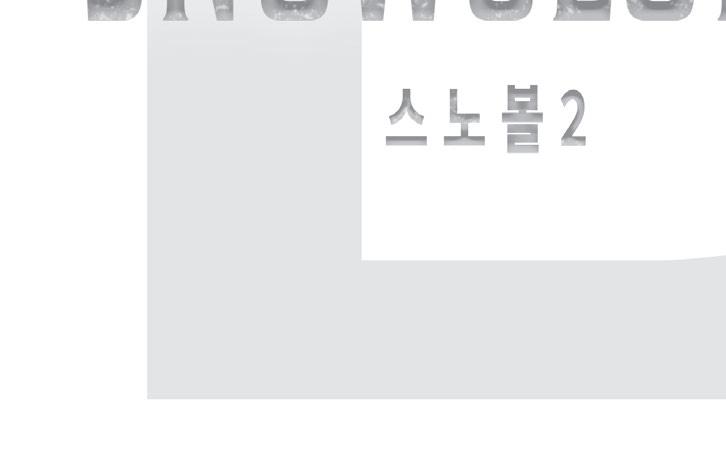



Books by Soyoung Park
Translated
by
Joungmin Lee Comfort
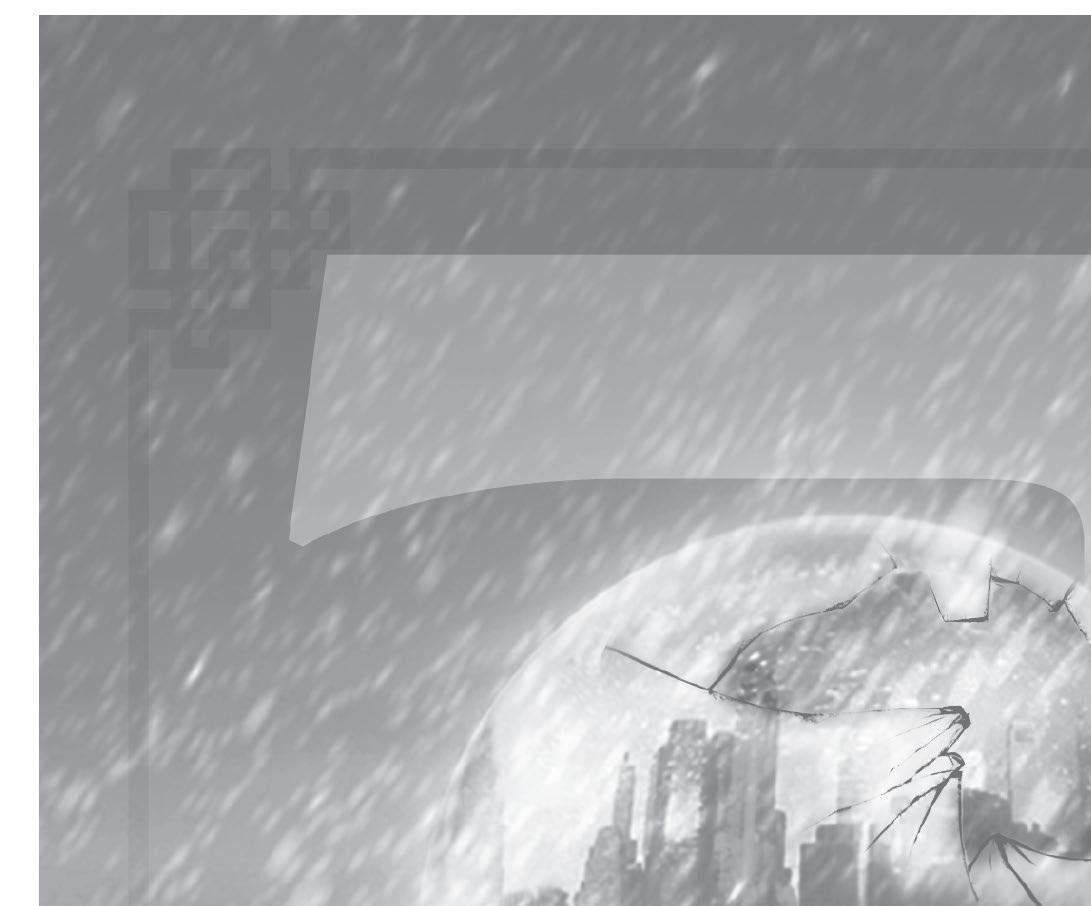
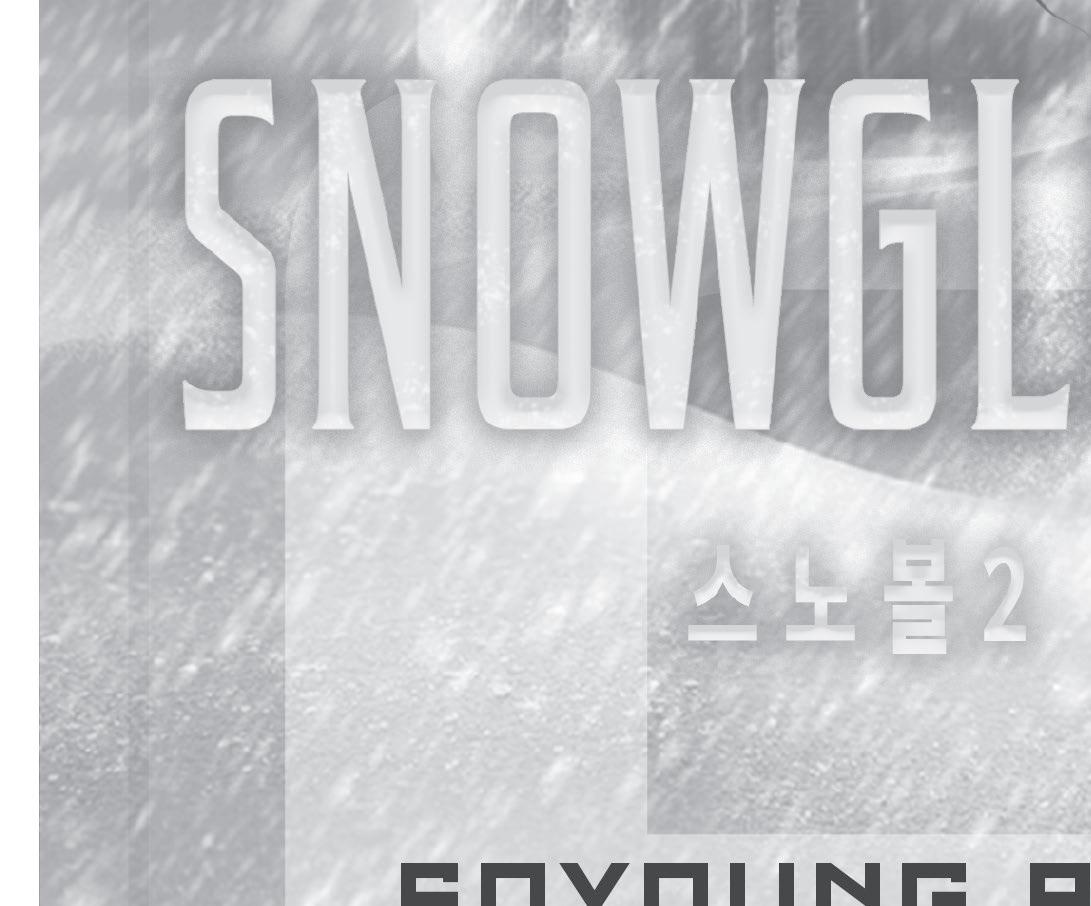
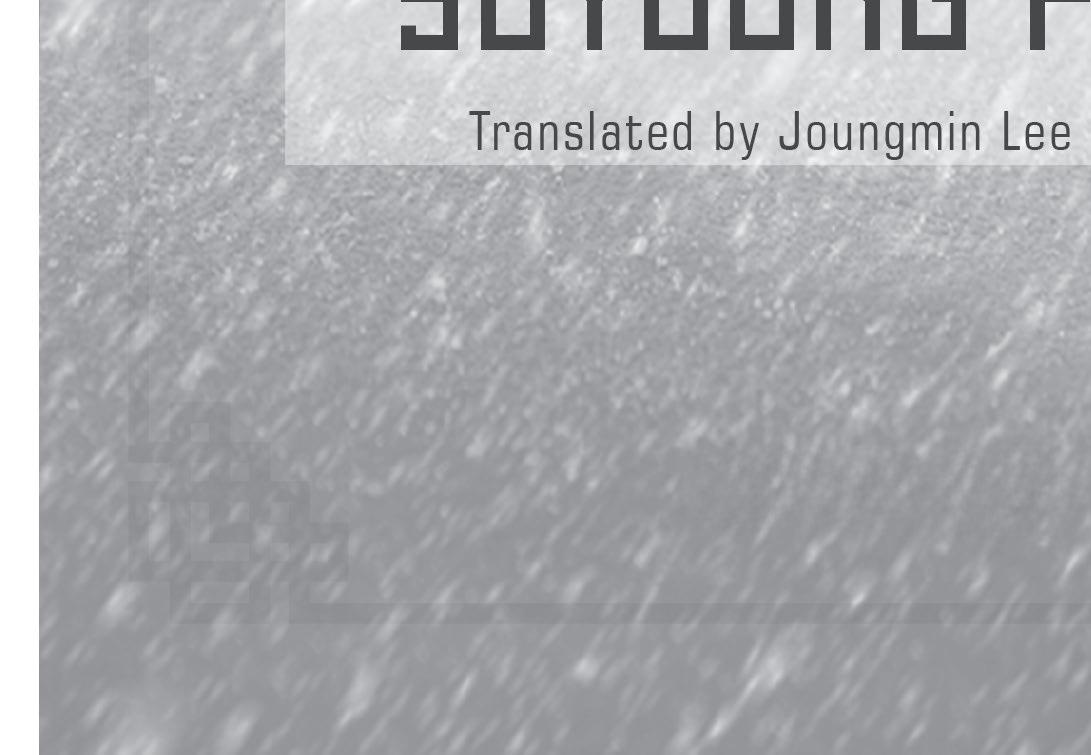

PENGUIN BOOK S
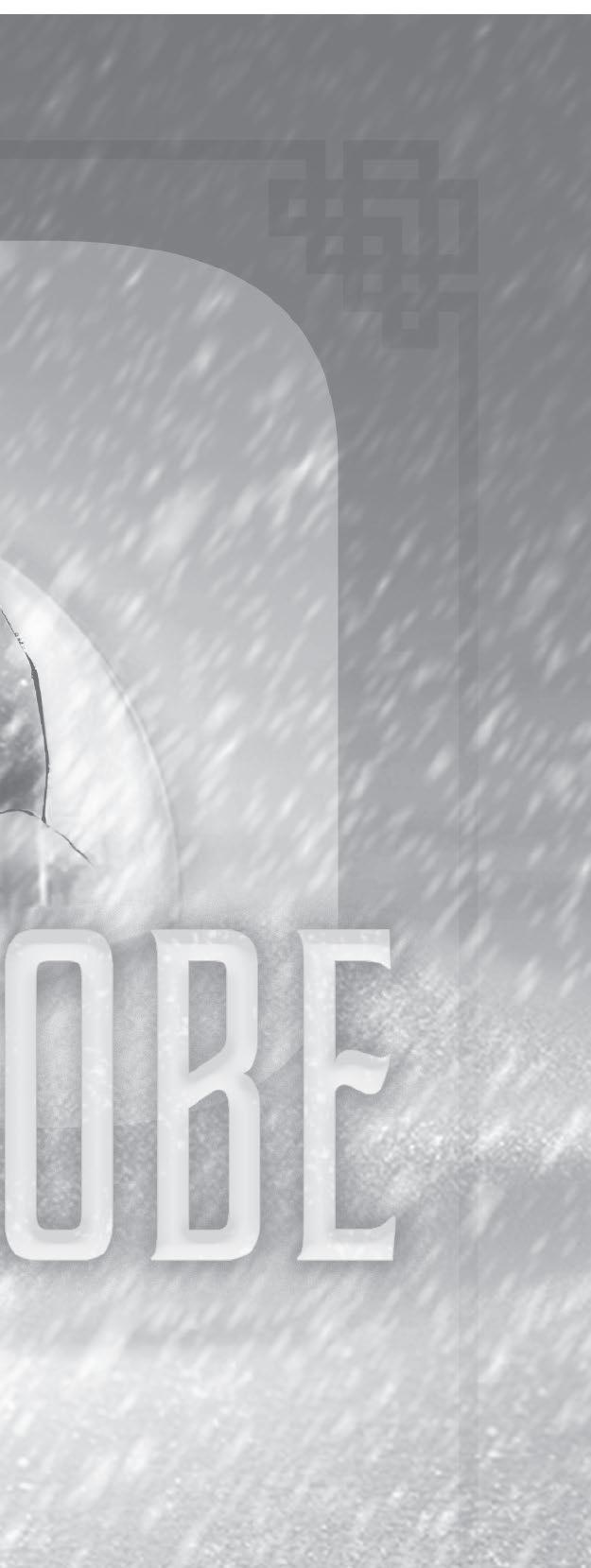
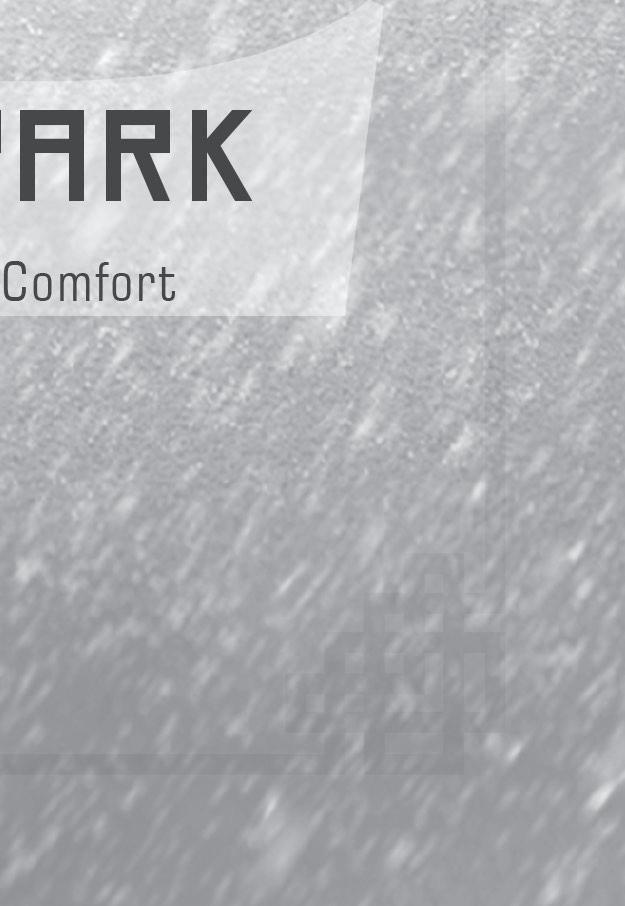
UK | USA | Canada | Ireland | Australia India | New Zealand | South Africa
Penguin Books is part of the Penguin Random House group of companies whose addresses can be found at global.penguinrandomhouse.com.
www.penguin.co.uk
www.puffin.co.uk www.ladybird.co.uk
First published in the United States by Delacorte Press, an imprint of Random House Children’s Books, a division of Penguin Random House LLC , New York, 2025
This edition published in the UK by Penguin Books, 2025
001
Text copyright © Soyoung Park, 2022
English translation copyright © Joungmin Lee Comfort, 2025
Cover art copyright © Shutterstock
The moral right of the author has been asserted Penguin Random House values and supports copyright. Copyright fuels creativity, encourages diverse voices, promotes freedom of expression and supports a vibrant culture. Thank you for purchasing an authorized edition of this book and for respecting intellectual property laws by not reproducing, scanning or distributing any part of it by any means without permission. You are supporting authors and enabling Penguin Random House to continue to publish books for everyone. No part of this book may be used or reproduced in any manner for the purpose of training artificial intelligence technologies or systems. In accordance with Article 4(3) of the DSM Directive 2019/790, Penguin Random House expressly reserves this work from the text and data mining exception.
Interior design by Michelle Canoni Cover Design by Casey Moses
Printed and bound in Great Britain by Clays Ltd, Elcograf S.p.A.
The authorized representative in the EEA is Penguin Random House Ireland, Morrison Chambers, 32 Nassau Street, Dublin D02 YH68
A CIP catalogue record for this book is available from the British Library
ISBN : 978–0–241–68108–4
All correspondence to: Penguin Books
Penguin Random House Children’s One Embassy Gardens, 8 Viaduct Gardens, London SW11 7BW
Penguin Random Hous e is committed to a sustainable future for our business, our readers and our planet. is book is made from Forest Stewardship Council® certified paper.
ACTORS
Jeon Chobahm
Bae Serin
Myung Somyung
Shin Shinae
Jo Yeosu
Jo Miryu
Goh Maeryung
Goh Sanghui
Goh Rhim
Goh Shihwang
Goh Wooyo
Hwang Sannah
Jin Jinsuh
Fran
DIRECTORS
Cha Seol
Cha Guibahng
Cha Hyang
Yibonn Media Group:
Yi Bonyung
Yi Bonshim
Yi Bonwhe
PLANT WORKERS
Boss
Heart
Healer
Diver
Violet Knife
Sky Wisher
ENGINEERS
Shin Ichae



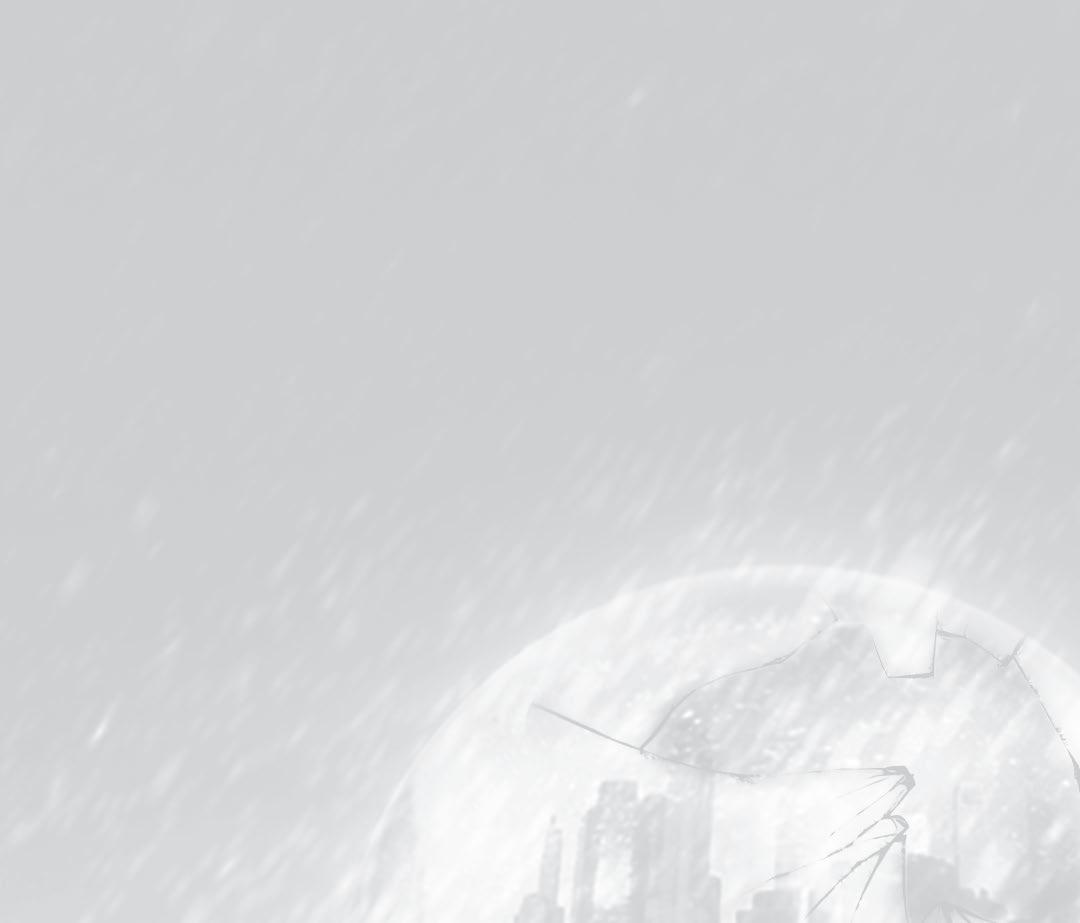
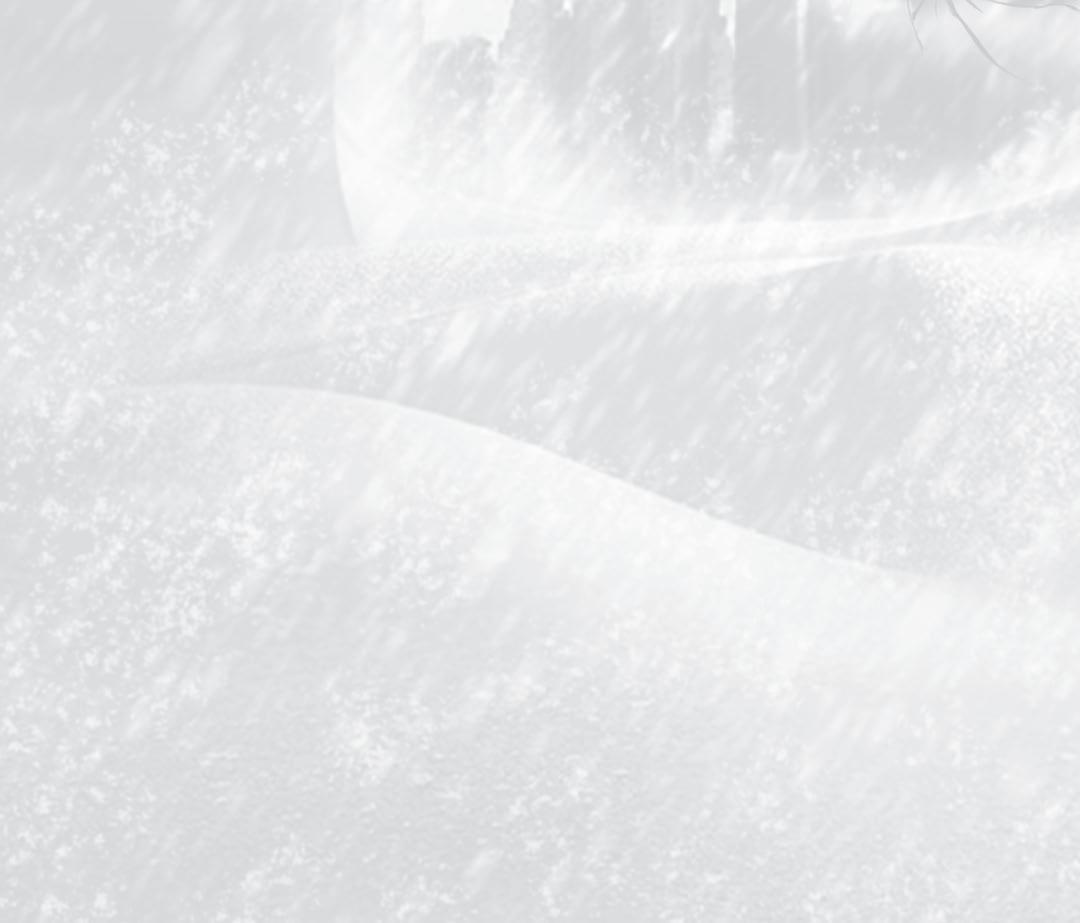
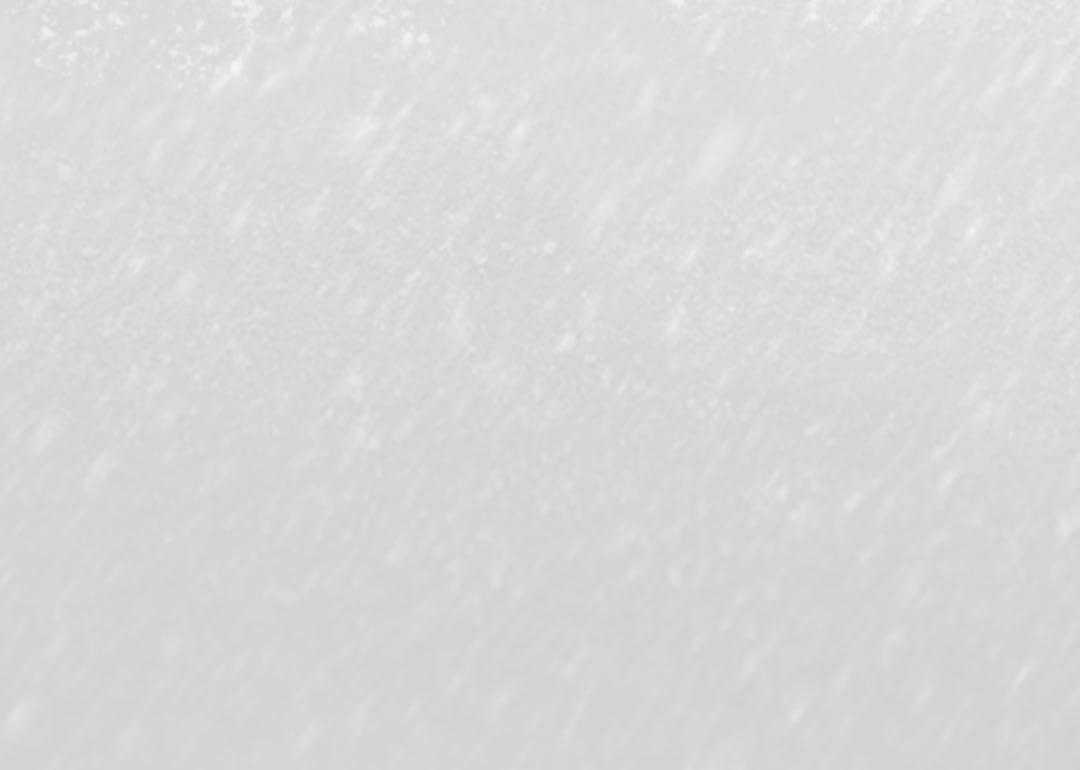





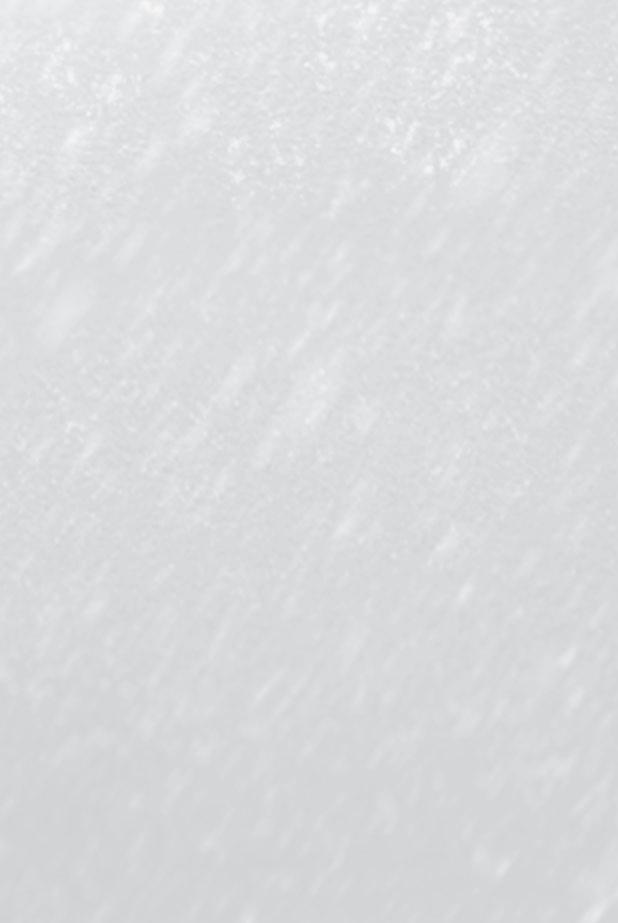
At once, all the lights go out and the TV goes dead. On the dark screen, ghostly afterimages linger for another moment before they, too, dissipate, plunging us into darkness.
“For real?” Beside me, Somyung balls her fists at her sides and squeals with a nervous laugh.
My brother Ongi sighs softly with wonder.
“The news was on point . . .”
It was just minutes ago that News at 9 announced an imminent power outage for District 1, our home district, located on the east side of Snowglobe— the domed, temperaturecontrolled city where we live, and the only warm refuge in our otherwise-frozen world. Inside the dome, a record- setting heat wave has been raging for five days straight, with tropical conditions continuing into the nights without remit, resulting in round-the- clock use of air- conditioning and fans everywhere by people seeking relief. Needless to say, this has put a major strain on our electrical grids. All week, experts have been warning us of shortages and blackouts, but we ignored
them. What else could we do? Roast ourselves alive? And now here we are, dealing with the first outage of the season.
On the table, a small desk clock dutifully ticks on. Nineteen past nine, according to its luminescent dial. My eyes are still adjusting to the dark, when heat and humidity begin pressing from all sides. Overhead, the fan stops completely, finally losing the last of its momentum, and it doesn’t matter if all it did was chop uselessly at the ovenlike air settling thick over us. Our discomfort is absolute.
“Damn, it’s hot,” Somyung mutters. Beneath her short hair, her face is identical to mine— as both she and I are identical to Haeri, the onetime megastar of Snowglobe’s most popular reality show. It seems like only recently that I saw her for the first time in the break room of the Ja-B- 6 plant in the open world; that the two of us, along with others, realized we were integral parts of the sinister Director Cha’s plot to create the perfect TV heroine.
That the Haeri we grew up watching on our screens never existed . . . at least, not in the way we thought she did.
We might as well have kept the air on all afternoon instead of doing our part as responsible citizens and trying to conserve energy. That’s probably what everyone else did, maximize consumption, believing that if they didn’t do it, someone else would anyway.
Then the third of us, Shinae, quips, while fumbling in the dark for a handheld fan, “Ha! Running out of electricity because people are trying desperately to cool down? What a concept!”
This induces a chuckle from everyone— everyone but Hyang, that is, who glares at us, unimpressed, from where she
is sitting. For the rest of us non- natives who are used to an annual temperature of negative fifty degrees, Snowglobe’s sizzling summer is at once intimidating and kind of amazing. But for Hyang, who grew up in luxury as Director Cha’s sister and a onetime director herself before being exiled to the retirees’ village where I met her, this heat must be a familiar foe. Hyang and Miryu, another former Snowglobe actor whose show— a brutal murder program starring Miryu herself as the merciless killer— also resulted in her ostracization and banishment before she and Hyang reunited recently, move deftly through the dark, lighting candles, drawing a huge pitcher of ice water, and even getting ice pops from the freezer. Meanwhile, all Shinae and I can do is lie plastered to the wooden floor while fanning ourselves. Ongi and Somyung head off to cool down with cold showers in the first- and second-floor bathrooms, respectively.
“Man, it’s hot!” I cry out for the dozenth time, crunching ice cubes between my teeth, but the cool relief they offer stays with me for all of a few seconds before escaping through my sweating pores. I know from experience, it’s the same with cold showers. Just moments after you step out and towel off, the warm, waterlogged air welcomes you back into its sticky embrace. Outside the wide- open windows of the living room, cars and trucks zip by, kicking up gusts of heat and exhaust into our already-boiling house.
“Ugh . . . Should we forget the candles? They’ve gotta be adding to the heat,” Shinae suggests, squinting at the tiny flames. Like me, she was raised in the open world, completely unaware that the people she thought were her parents were in fact just foster parents— that she, also like me, was conceived
as one of a number of Haeri clones. It still sickens me to think of it. How Director Cha introduced the world to Haeri as a baby, then created a host of stand-ins to swap out when her perfect star started acting less-than-perfect. I myself was brought in only after the previous “Haeri”—whose true name was Jo Yeosu— took her own life. And even then, I was only meant to reside in Snowglobe for a short time, as a replacement for the intended replacement, Serin, while Serin underwent surgery to remove childhood scars.
But Director Cha didn’t realize her creations could fight back. She didn’t think any of us, if given the chance, would turn down the opportunity to become Haeri— Snowglobe’s most famous girl— even if it meant stepping over one another.
She was wrong.
Suddenly, Hyang springs to her feet and claps her hands in sudden excitement, bringing me back to the present.
“I have an idea,” she says, and tapping Somyung, who’s lying listlessly on the floor, snow- angel style, with her foot. “Get up! Let’s go!”
Somyung looks up at her in annoyance, but then her eyes light up in the next moment, and she’s suddenly on her feet, crying, “You’re right! Why didn’t we think of it before? We’ll go to a district with electricity!”
She stares at Hyang with breathless expectation, which Hyang returns with an exaggerated look of pity. Being older than us, and the only adult along with Miryu, she’s taken on the role of our de facto guardian since we’ve been in Snowglobe. Tut-tutting with her tongue, Hyang shuffles to the entryway closet and fishes out a large picnic basket.
“Electricity?” she huffs. “Let me show you how to cool off in style.”
Then, as we watch her with curiosity, she goes around the house, stuffing the basket with a variety of items. When she casually suggests that someone should go upstairs and get Serin, Shinae and I just exchange a glance. It’s been about a month since we moved out of the Yibonn estate—home to the founding family and guardians of Snowglobe, as well as the heads of all its programming— and into this two- story house we share. Like us, Serin is a Haeri clone— the clone I was meant to act as a stand-in for, until unknown to me, Director Cha decided to make my role as Haeri permanent. But unlike the rest of us, Serin would have done anything to keep the Haeri illusion up. She resents us for revealing the truth behind Cha’s plot, and though Serin’s whitehot hatred and animosity toward us might have cooled a bit over the past weeks, she still keeps her distance. Apparently, even the outage isn’t enough to drive her from her room in search of comfort in our company.
We continue to stall as Hyang urges, “Come on, girls. We’re not going to let Serin roast in the dark house by herself.”
Serin’s resentment of us is profound. In her mind, we swooped in with our exposé to rob her of her life as Haeri, which she had earned tooth- and- claw. And how have we been dealing with her? Sad to admit, but none of us seems especially capable of loving thy enemy or of blessing those who curse you, not in the face of her daily venomous attitude.
“I’ll go get her.” Ongi, back from the showers, voluntarily steps in and heads for the stairs, always the peacemaker. I appreciate my brother’s joviality even more now.
I have the impulse to go help Hyang gather this and that in the kitchen just so I have an excuse not to join them, but after seeing Somyung and Shinae join Hyang, I cave under pressure and drag myself up the stairs.
You, Me, and Us, the hottest new Snowglobe show in which we all star, breaks the age- old mold in many aspects, the most notable of which is that it’s available to residents of Snowglobe, rather than just being filmed here and streamed to the outer world as all other Snowglobe programming is. Since all shows are reality-based and most actors live their roles, allowing the stars to watch their own programs could result in spoilers— something that directors avoid at all costs. As the only actors with access to their own show, we have watched a total of four episodes so far.
After each viewing, the three of us invariably find ourselves asking each other, “Is it just me, or do we come across as . . . kind of mean to Serin?”
We’re not mean to Serin, of course not. At least not intentionally. It’s Serin who chooses to ostracize herself in her selfsabotaging contempt for us; and Hyang, our director, doesn’t engage in the kind of editorial cutting and manipulating that other directors use to twist that truth into a streamlined story. Funny thing is, though, the Serin in our show does seem lonelier and sadder than the Serin full- of- barbs we all know in real life.
For instance, in the show, Serin would be all alone in her darkened room, lying in her bed and staring vacantly at the
ceiling as gales of merry laughter drift up from downstairs. And when she’d blink— slowly and dramatically— tears would release from her liquid eyes and roll down her temples, which the high-power lenses of Snowglobe cameras would capture with crystalline clarity even in the low light.
I admit that I never imagined a sad, lonely, or vulnerable Serin until I saw her in our own show. And though it’s entirely possible that it’s pure playacting for the camera, what if she’s indeed sad, lonely, and struggling to reach out to us because of some stupid pride or fear of rejection? If so, I’m willing to extend the olive branch. I just need to know.
And yet I’m already feeling tense, nearing Serin’s room in the hallway. Thank god for my brother’s presence, which tends to soften the hostile air between her and me.
“Go where?” Serin’s voice flows out of her room, meek and anxious.
Creeping up to her open doorway, I peek in to see her sitting crouched on her bed against the headboard with her knees drawn to her chest, her empty gaze fixed on a spot on the comforter. Ongi sits on the edge of the far end with one foot on the floor.
“I don’t know. Hyang knows a place, apparently. She says it’s real nice,” Ongi answers cheerfully, his voice full of warmth.
But Serin sits frozen in her chronic sourness, refusing to even glance up at him. Ongi dips his head to one side and tries to catch her eye.
“Come on, Serin. Come with us,” he pleads softly, and the most attentive, caring tone he uses with her somehow transports me to fourth grade when we used to bicker and fight like two badgers. Following such a bout, I’d shut him out
completely, refusing to speak to him or even to acknowledge his presence in that tiny house of ours; but he’d always make the first gesture for peace, cajoling and clowning to draw me out in that same tone of voice as if we hadn’t been at each other’s throat mere hours before. And soon enough, I’d be laughing at his antics, forgetting that I was even angry with him. The message I internalized through all this was Ongi will always have my back, no matter what. But as we grew older, our fights got worse, and we drifted apart. It’s been a long time since I’ve heard him speak like this.
“Oppa . . . ,” Serin mewls then, yanking me out of my reverie.
Did she just call him oppa, a term of familial respect and affection that is long extinct between Ongi and me?
She continues in the same wronged, pitiable tone, “If I do go, will you stay close to me? You already know, oppa. The girls hate me. And it’s clear whose side Hyang and Miryu are on. I hope you understand how uncomfortable and awkward it is for me to even be around them.”
What? Who hates who?
My bighearted intent to casually slip into their conversation flies out of me.
“You know that’s not true,” Ongi denies. “We care so much about you. All of us do.”
“See? That’s what I’m talking about, oppa. You, too, speak for them—from their side,” Serin says, letting her voice fall. “No one’s on my side.”
The hurt in her eyes is almost real. I don’t have a good view of Ongi’s face from this angle, but his silence tells me
he’s hard-pressed for a counterpoint. This is where I need to insert myself. I’m debating between harsh rapping on the door and savage throat- clearing, but then Ongi speaks up.
“Point taken,” he says, and raising his right hand in the way of a court witness, he goes on brightly. “From now on, I, Jeon Ongi, am on Serin’s side.”
My heart squeezes in my chest. What?
Serin gives Ongi a long look. Then she finally lets the makings of a smile emerge on her lips, and she says, “Really?”
Ongi lets out an expansive, oppa-like chuckle, and nods his head.
“Really. So let’s go. Everyone’s waiting for you,” he says, pushing up to his feet and offering his hand to Serin. “Embrace the awkward. Lean into it. That’s the fastest way to get close to anyone.”
Meanwhile, the tiny camera perched on the bedside lamp faithfully rolls on, unaffected by the blackout. It’s fed by the Central Power Plant’s nuclear energy, as are the hundred million other Snowglobe cameras. Typical Snowglobe: content comes above everything else, even the comfort of its residents.
I swing around and flee toward the bathroom, already thinking about asking Hyang to edit out the scene where I’m listening in on these two. My heart’s heavy, and for no good reason I can think of. Yes, I’m guilty of eavesdropping, but so what? It wasn’t intentional, anyway. Not really. Then there is the hurt and embarrassment I’m feeling after being betrayed on camera by Ongi, my twin brother who has just pledged his allegiance to Serin?
Slipping into the bathroom and locking the door behind
me, I remind myself that Ongi is no longer blood. We never have been, in fact. Like with the other clones, my parents were only surrogates, meant to foster me until Director Cha had need of me in Snowglobe. I keep forgetting this cold fact, though I was the one who let the world know when the rest of the Haeris and I interrupted a live weathercast to expose Cha’s plot.
Soon we’re all riding in Hyang’s van to the mystery destination. The vehicle is crowded, and Ongi won’t stop chatting up Serin as if it’s his duty to keep her engaged and entertained, which bugs me more than I want to admit.
It stinks— it does— to know that he has chosen Serin, of all people, over me. But I curb my impulse to throttle him because . . . I’m not jealous of or threatened by her in the least. I’m way cooler than that, aren’t I? Plus, I can’t let Somyung or Shinae—or, god forbid, Ongi—get wind of it, even if I were.
But just who does he think he is? A peacemaker? Patron saint of self- alienating antisocial girls? Why does he try so hard to pull her in?
“Gosh . . . Look, Serin! The Disaster Meter is already up by ten degrees,” he’s saying now.
I’m fighting the impulse to repeat what he said in a mocking voice, when the sight of said meter glowing menacingly in the distance sobers me up. Ninety-three, it reads.
The Disaster Meter is an instrument much like a thermometer but for measuring and indicating how close we are to the next Snowglobe disaster. It consists of a giant sealed glass tube marked with graduations from 0 to 100 and has at
the low end a bulb containing liquid the color of pomegranate juice— or blood, depending on your imagination— that expands or contracts within the tube to indicate the level of danger. On top of the giant thermometer, a ball of fire burns for twenty-four hours straight even in steady rain. Before I came to Snowglobe, I would watch the weather disasters that hit its population on TV, but I’ve never experienced one myself. “When did it jump to ninety-three? How?” Serin balks. “It was a slow climb to eighty.”
“Yeah . . . It’s the blackout in District 1 that’s caused the spike,” Hyang supplies from behind the wheel, her voice higher and brighter than usual, no doubt in consciousness of Serin, who’s gracing us with her presence today. “Compound penalty,” she continues in that tone that rubs me the wrong way. “The blackout is a direct consequence of our being wasteful and irresponsible with the electricity imported from the open world.”
Snowglobe has a penalty system similar to what we had in school, where merits are deducted for every infraction committed. In our case, they include things like failure to return to the set by the end of the break, lingering behind privacy walls longer than is reasonable, and various other instances of willful or accidental dereliction of actorly duty, all of which push up the Disaster Meter’s gauge. A single actor’s minor infraction is a drop in the ocean, of course, but multiply the drop by whatever magnitude it takes to account for all of Snowglobe’s actor-residents, and the meter ticks up appreciably until it eventually reaches the flash point of 100. Then, while the instrument burns to cinders and ashes, the live weather drawing on News at 9 determines which seasonally
appropriate natural disaster— drought, dust storm, extreme heat, wildfire, snowstorm, et cetera—will descend upon the community, and at what level of intensity. All this hangs on the fingertips of the weathercaster.
Meanwhile, outside the domed city, the rest of the world buzzes with anticipation of the fresh drama and pathos that this year’s meteorological disaster will bring to the screen. Many gamble, betting on the type and severity of the disaster to be drawn. Those with personal ties to Snowglobe hope and pray that whatever the disaster, it won’t be too unkind.
In any case, there’s not been a year in which Snowglobe escaped such a disaster— not in recent memory, at least, and not with the community’s increasingly indifferent attitude and habits toward energy conservation, which have rendered multiple summer blackouts a regular feature for many years.
Thankfully, weathercasters sometimes manage to draw rather fun and wonderful disasters, such as Cola Rain and Rose Petal Storm, the latter of which was simply spectacular by anyone’s standard. But the opposite can also be true, like when Snowglobe was hit by screaming typhoons or ten days of driving rain. Those are the kinds of disasters that have wreaked serious havoc in the Snowglobe community.
“Please . . . Anything but boiling heat. I can’t take it,” Ongi begs, gathering his hands in prayer in the direction of the Disaster Meter glowing with the fire on top, alone in the dark. “Let us have Cola Rain again. Yes, I wish for Cola Rain,” he murmurs. “And for everyone’s safety.”
I wish to meet my dad. I wish for Chobahm to be accepted into film school. I wish for Grandma to get well. None of my brother’s birthday wishes ever come true. Not a single one
of them. So what else can I do but wish that his wish would come true this time; that everyone, including him, will be unscathed by whatever disaster is unleashed. Under the dome, the world is eerie in its still darkness. It’s seven more degrees until disaster.
“S- snake! Snake!” Shinae screams, leaping into the air.
“Where? Where?”
Always the toughest of us, Somyung shakes her walking stick— a dead tree limb she found on the trail— at the ground. The beam of her headlamp dances wildly in the dark as she looks around in panic for the creature Shinae called out about. Up ahead, Hyang lets out a laugh.
“There are no snakes in these woods!” she assures us.
Shinae, drenched in sweat and annoyance, yells back, “How about a destination? Is there a destination in these woods?”
Dragged into a sort of forced march to a mystery destination at this hour, we can’t stop complaining every few minutes. Simply existing in this weather is enough to make sweat start beading on our skin, and yet here we are, ascending a steep and thickly wooded trail.
“Come on, Ajumma! Are we there yet?” I snap for what feels like the hundredth time.
Our Discomfort Index has long surpassed 100, and I’m not
sure if any destination is worth this trek in this heat. When the trail finally opens up, I gasp in spite of myself. In front of us lies a lake sparkling under the stars on the flat mountaintop. We stand there a moment at the trail’s end, taking in the beauty while sighing and murmuring with wonder, the steamy air that’s been clinging to us like a hot, wet towel finally falling away.
Then we’re crossing the warm sand to the water’s edge, where we settle with folding chairs and roll- out mats we’ve lugged up the mountain. Setting down the basket full of provisions, Ongi takes out the thermos of iced coffee and turns on the portable radio.
According to the news crackling out of its speakers, beaches everywhere, and even the Central Pond in front of the SnowTower— where the weather and news broadcasts take place, and where we staged our exposé— are jam-packed with people desperately trying to cool off. The bars and restaurants in Districts 2 and 3 are at capacity with the overflow of customers from District 1 experiencing a blackout.
But this lake nestled atop this hill is all ours. I suppose no one else has come up with Hyang’s crazy idea to scale a small mountain on this sweltering night. I snap back to attention as Shinae asks, “Who wants the last slice of watermelon?” inciting a chorus of “Me! Me! Me!”
The cool, gentle breeze blowing off the lake dries our sweat as we talk and laugh. The air is fragrant with chlorophyll. Every bite of watermelon tastes sweeter than the one before.
I pause as an odd rowboat turned upside down by the far edge of the lake catches my eye. Could it be hiding a camera?
Of course it could. So could the many squirrel nests among the tree limbs up above.
Frowning, I shake my head. Best not to think about how, or if, we’re being monitored. In Snowglobe, the surveillance is constant, after all. I turn as Miryu suggests that we all switch off our headlamps and count backward from ten.
. . . four, three, two, one.
Everyone looks up at the sky. The Milky Way drifts languidly across the blue-black of the expanding universe— or that’s the illusion we all buy into, anyway, thanks to Snowglobe’s state- of-the- art technology. It’s precisely the sky that Fran drew last night; he has been filling in the weathercaster void left by Haeri. I study the constellations. Is that Venus over there? Uranus?
Ongi is the first to come back to Earth.
“Let’s go float on our backs,” he says, gazing at the shimmering water. “It’ll be like floating in the galaxy!”
In unison, we’re springing to our feet, whooping and hooting with excitement— except for Hyang, who claims to be hydrophobic.
After the exposé, we made a Snowglobe bucket list. At the top of it is a trip to the beach, and since then, all of us, even Serin, have been taking thrice-weekly swim lessons at the local pool. Still, a night swim in open water warrants due caution, so we decide to take turns floating on the two inner tubes, which we inflate with our breath. Somyung and Shinae wade in first, tubes around their middles.
“We can paddle around while we wait,” Ongi says, snatching me and Serin by our wrists and pulling us toward the
beached rowboat. I hesitate for a moment, uncertain, before the three of us flip the thing over and slide it onto the water.
At Ongi’s insistence, Serin and I teeter in first while he holds the rowboat stable. He then tosses in the oars and guides the vessel away from the shallows. I’m expecting him to hop in now since the water is already lapping at his thighs, but that’s when he pushes away the rowboat with all his might.
“What are you doing?” I demand.
“Oppa . . . ?” Serin accuses.
But Ongi is already wading backward, grinning sheepishly.
“There you go,” he says. “You two have some quality time together while I go beat Hyang in Omok. It’s the championship match.”
Aghast, I glance at Serin, who glances at me, and we reflexively look away from each other. My mind jumps to the night of the exposé, when she and I tumbled onto the studio’s floor like a pair of battling beetles, blood leaking from my left brow bone and streaking her cream- colored suit. That was the last time we found ourselves in such close physical proximity to each other.
“Paddle, will you?” Serin’s voice leaps out at me then.
“Huh?”
“Can’t you see? The boat’s spinning in circles. Paddle!”
Her bark stings me into action, and I’m doing as I’m told without meaning to, promptly dipping my oar in the water and pulling. The rowboat begins precariously zigging and zagging across the water. After a while, though, our strokes have somehow synchronized, and we’re gliding on the moonlit and
star- spangled galaxy of the placid lake. Up ahead, Miryu pauses her backstroke and watches us a moment before giving us a thumbs-up and swimming away. I couldn’t really see her face, but she seemed to be smiling.
On the retreating shore, Hyang and Ongi sit perched on their folding chairs with the Omok table in between, their heads turned in our direction. Somyung and Shinae float lazily nearby in their tubes, bathing in the moonlight; but if the beams of their headlamps indicate anything, they’re watching us, too. Everyone’s studying us.
Serin and I keep paddling awhile in silence, the sound of our oars dipping and gently sloshing water filling the awkward air between us. Then we’re in the middle of the lake. Serin lifts her oar out of the water and rests it across her lap.
“I saw Grandma yesterday,” she says, looking right at me from where she’s seated at the opposite end of the boat.
“Grandma?”
“Yeah, Grandma,” she repeats, smiling up at the twinkling sky. “You do know that she was released on bail, don’t you?”
I do. So by Grandma, she means Goh Maeryung. Our television grandma— and a key player in Director Cha’s scheme to make Haeri the biggest star in Snowglobe. I see.
It was a few days ago that the woman was finally granted bail on account of her declining health. With the stress of the legal proceedings surrounding her and Director Cha taking a toll on her, the formerly imposing matriarch of the Goh family was looking notably her age when she entered the courtroom in her blue inmate uniform. But what is this Grandma business?
“So . . . how did you see her?” I say, trying to sound casual while setting aside the issue of the title for now.
With a heavy sigh, Serin drops her face to level an annoyed gaze at me, all traces of a smile gone.
“What do you mean how?” she says, squinting at me as if I’ve just asked her the dumbest question. “I visited Grandma at her house, of course.”
This girl . . .
All right, then. I take the bait.
“Since when is she your grandma?”
She waits a long beat, reveling in my confusion as she studies my face. Then she says, “Grandma told me . . . that I am Sanghui’s baby girl.”
I just stare at her, struck dumb. Sanghui— that’s Haeri’s television mother and Maeryung’s daughter. Even after Hyang, the other girls, and I unraveled most of the mysteries surrounding Haeri’s family, the question of what happened to Sanghui’s original child, the little girl she gave birth to, is one we’ve never been able to answer.
I don’t know where the conversation is going, but I already don’t like it. How can Serin be the girl Sanghui gave birth to?
From the little information we’ve managed to gather, I know the girl ran off to the forbidden woods to avoid being replaced by one of us and hasn’t been found until this moment.
Right?
Serin then recounts the story of the three-year- old Haeri, who fainted at a Halloween party when she was scared by a guest dressed up as a jack- o’- lantern. It’s one I recall well, having watched it in the open world as a child myself— one of the most famous moments in the entirety of the show’s run, in fact. Following the incident, little Haeri retreated into her shell and wouldn’t be coaxed out by anyone. She lost her
speech, as well as her angelic smile, neither of which would return until the following spring. Her face remained expressionless on Christmas Eve when her mom put a diamond bracelet around her tiny wrist, and even on Christmas morning when she unwrapped a toy that was all the rage among kids her age that year. And whenever she had a meltdown, even her grandmother, who the little girl adored more than anyone in the world, was helpless in putting a stop to it. Haeri just continued crying until she could cry no more.
“That girl was my replacement,” Serin says, absently feeling the skin around her mouth with her fingertips. “The scar that I thought all my life I’d gained in the open world, I’d actually gotten it right here in Snowglobe, in the family home . . . Grandma says that I knocked over a boiling kettle when she looked away for a second.” Her eyes fill with heartache and self-pity. “You probably get the picture now. I was promptly swapped out for my replacement, and as she struggled to adapt to my family and Snowglobe, I struggled to adapt to her family in the open world.”
Meanwhile, she goes on, Serin’s new mom in the open world had intuited that Serin wasn’t hers. It made no sense that her baby girl would disappear into thin air one night— a –50°F thin air, no less— only to be returned to the family a few days later without explanation, save for a taut scar burnishing the skin around her mouth and nose. A year passed, but she didn’t take to Serin, maintaining that the girl wasn’t her daughter. Neighbors murmured their pity for the young mom whose mind had clearly splintered. Three more years passed, and then some more, but she never changed her belief . . .
“That’s insane,” I cut her off. “Most three-year- olds are
verbal. Are you really suggesting that neither you nor your replacement uttered a word to your new families about what had happened?”
“Temporary loss of speech—remember?” Serin counters. “Emotional trauma caused the girl to shut herself off from her surroundings. Just as it did me.”
I’m still processing this information when her annoyed face morphs into one of sheer rancor, and she is back on the attack.
“Is it really so difficult for you to believe that I am the original Haeri?” she hisses. “Why don’t you go ask my grandma yourself, then?”
“That’s not what I’m talking about,” I say. There was never such a thing as the original Haeri, I’m about to add. All of us, even Sanghui’s daughter, were just pawns— clones— for Director Cha to sort through until she found the best one of us. The one she’d make her star.
“But that’s what I’m talking about!” Serin fires back. “Can you imagine being repeatedly rejected by your own mom, who is incapable of loving you? I can. I experienced it firsthand, and for the better part of my life. And so did the other girl!”
Sanghui’s wretched sobs echo in my ear then. How could I ever forget? It had been one of my first few days as Haeri. In the bathroom, waiting for Sanghui to touch up my face, I’d ended up witnessing her total breakdown.
How is she my daughter? she cried as Maeryung tried to placate her. There was no such thing as my daughter to begin with, and you— you know it!
“Maeryung told you all this yesterday?” I ask, blinking away the memory.
Her eyes suddenly pooling with tears, Serin nods weakly. Then she drops her head and proceeds to sob softly into her hands. Watching her shoulders shudder with each sob, I can’t help but feel a pang of sympathy for her, or for the little girl she once was, who had to grow up without a mother’s love— supposedly.
I’m reaching out an awkward hand to comfort her when, all of a sudden, bright beams of light shoot out from under the rowboat’s hull and checker the air. Then the clack! of the slate echoes around the midnight lake.
So I was right. The rowboat did hold a camera. The beam of light, as well as the clacking noise, means it’s briefly shut off for regular camera checkups and transmission of the footage— granting us actors one of our rare required breaks from surveillance. They happen periodically throughout our days, but randomly, so the freedom is brief. When the next slate begins, we’ll be expected to be back in our places, ready to resume the scene.
“Ugh . . . Why now?” Serin grumbles, lifting her face.
I’m thoroughly mystified. Her face, tearstained though it is, is utterly devoid of the pain or sorrow I bore witness to just a few seconds ago.
“Were you just pretending to cry?” I say in disbelief.
“Pretending?” she repeats, looking at me with such contempt. “Why would I have to, when the mere sight of your face makes me want to cry?”
The weight of her hatred settles heavily into my chest, and I push it back with a weary sigh.
“Will you ever stop resenting me? Have you forgotten that you’re the one who stuck that needle in my neck and then
tossed me off to rot in the retirees’ village with Hyang? I almost ended up living as a ghost, all so you could play at being Haeri!” I say, hearing myself getting worked up at the memory. “And have I ever blamed you for any of that?”
I have never, and she knows it. The thing is, Serin did what she had to, or at least, that’s how I see it. If not me, it was going to be her languishing in that godforsaken place. Both she and I merely tried to survive the hell storm into which Cha Guibahng and his granddaughter, Director Cha, had thrown us. That’s all. A drowning person clutching and trying to climb atop their neighbor has no conscious thought process— only instinct. What Serin and I did to each other had been driven by the same survival instinct, which is why I made up my mind not to loathe her.
“Let me tell you again, Jeon Chobahm,” Serin says then. “I don’t resent you. Not you, necessarily. But I do feel incredibly frustrated with—” Her voice is heating up again, and she pauses to draw in a long breath through her nose. “It’s unfair,” she resumes, finally breathing out. “That you alone were spared.”
Spared? I’m not sure I understand, but the conviction in her voice is so final that it chills me.
“What are you talking about?”
“Don’t you get it? Somyung was orphaned at thirteen, and Shinae had to grow up in that disastrous family, under a father who called her mother a whore and a slut because she couldn’t explain where her pregnancy came from. The girl torn away from her family at three to replace me? No one has seen her since she ran off into the woods. Yeosu died. And there’s me . . . but what about you?”
What about me? What about me? I dig my nails into the clammy palms of my hands and stare back at her, speechless. That’s when the tight bitterness in her face relaxes into a kind of curiosity, and she says, almost with childlike wonder, “How come . . . you alone are whole?”
Whole . . .
Her eyes searching my face for an answer suddenly tug at my heart, and I finally understand what she means. My one and only mom, Jeon Heewoo. My grandmother, Jeon Wol, who I love more than anyone in the whole wide world. My twin brother and best friend Jeon Ongi. And of course, there’s my dad, Yim Hahnyung, who sacrificed himself for Ongi and me when we were still in our mom’s womb. My life has been free of the sort of tragedy Serin could appreciate. I’ve never been without love.
“Sure. We’re all victims of Cha’s scheme. But some of us suffered more than others,” she says, and I can feel her resentment coming up again. “And yet, everyone falls all over themselves over you just because you led the so- called exposé. Do you think that’s right?”
Do I think that’s right . . . ? I don’t know. I’ve never thought about it that way. It takes a long moment, but I manage to respond, “So what is it that Bae Serin wants?”
“I want you to feel as sad and miserable as you’ve made me feel,” she replies without missing a beat. “I had just reclaimed the life that was rightfully mine— the life of Haeri— and you went and took it away from me. Now that I have nothing, it makes me want to go for what’s yours, for what it’s worth.”
“So . . . ,” I say, feigning composure as her words bore straight into my heart. “Are you about to push me into the lake
and assume my identity or something? Like in a movie? And then what?”
“That’d be dumb,” she says with a laugh. “Miryu over there would practically skip across the water and save you.”
“Thanks,” I deadpan. “That makes me feel so much better. So what are you going to do, then? What’s your plan?”
She pulls in a deep breath, taking a slow look around the lake. In the distance, under the heavens spilling over with stars, my brother’s and friends’ headlamps move like fireflies.
“I’m going to try to take what you have,” Serin says, an odd smile drifting across her lips. “Family, love, friendship . . . all those kinds of things.”
A gentle breeze blows in and flutters through her hair. She tucks in the loose strands behind her ear, and the watch on her wrist catches my eye.
“That watch—”
“I brought it from Grandma’s,” she promptly cuts me off.
Anger buds in me. It was a gift to myself, the wristwatch. My first purchase with the first paycheck I’d ever earned as Haeri the weathercaster. And now she’s stolen that, too.
“Anything you have,” she says, her eyes lingering on Hyang and the gang frolicking on the shore in the distance. “I want to take it for myself.”
“You know I won’t sit back and watch that happen,” I say through my shock. I can’t let her have the last word.
She responds with a smug, unhurried smile, as if my opinion is of no consequence to her.
A breeze picks up across the lake. Trees lining the shore shake out their leaves, and an odd bird’s nest among the branches is illuminated in the moonlight. A fake one, I’m sure—likely
just one of the countless hidden camera props. But there have to be a few real ones among them, too, no? Maybe even a cuckoo’s nest . . . And the thought takes me away.
Cuckoos. Brood parasites that lay eggs in other birds’ nests and trick them into raising their young. As if that’s not enough, when a cuckoo chick hatches, it pushes the host species’ eggs out of the nest. Brutal. But that’s just the way evolution has programmed the species to perpetuate itself. It’s a natural instinct, neither evil nor good. If it inflicts harm on others, though, is it really—
Somewhere in the trees, a cuckoo breaks into an emphatic call, jolting me out of my thoughts. Serin, her eyes hard, is grinning at me, sitting perched on her rowboat seat like some kind of cuckoo herself. I reach for the hull and grip it fiercely. I won’t be pushed out of my nest.
On the car ride back home, Serin surprised everyone by expressing her desire to tag along with Shinae and me to go watch Somyung’s biathlon training. She was always the most athletic of us, as well as a great shot, so it didn’t come as a surprise when she announced her ambitions to train for the infamous competition— but Ongi, sitting by Serin as if a loyal pet, just beamed his patronizing smile of encouragement at me, making me want to slap him. Does he really believe that him tricking us into bobbing on the lake together in that rowboat has made all the difference? That we’ve finally struck a peace deal or something? He’s an idiot if he falls for the sudden shift in Serin’s attitude and behavior.
Back at home, Serin cozies up to Miryu at the sink, where she’s washing the thermoses and cups we used on our trip.
“Can I help you with breakfast from now on?” she says with a shy smile on her face.
As for Miryu, she hasn’t been able to find work, her infamy as a cold-blooded serial killer preceding her. Sadly, it
doesn’t look like she’ll be able to land a real job anytime soon, though there have been a few lackluster offers from the calculating director-types hoping to boost their own ratings by casting her in their failing shows.
“Work? What do you need work for? You know I make more than enough to support us. Take a load off while you can—while you’re here,” Hyang had said one day. “Live a little. Or just relax. You deserve it.”
From that day on, Miryu has taken it upon herself to earn her keep in other ways, and over the course of time, she discovered a latent talent for cooking.
“Why, of course, Serin,” Miryu says, welcoming Serin’s offer. “That’d be wonderful.”
“Oh, I’m not good in the kitchen or anything,” Serin demurs. “But I’ve been wanting to learn how to cook. From you, Miryu. I’m sorry I’ve never told you how much I appreciate you cooking for all of us.”
“Aww . . . Thank you for telling me that,” Miryu says with a bashful smile. She’s still learning to accept that she’s worthy of others’ trust and kindness. “So . . . is there a particular dish you want to learn how to cook first? Should we start with it? Tomorrow?”
By the pantry, Hyang is emptying the picnic basket, unable to stop smiling at this heartwarming scene. This kind of interaction with Serin was unthinkable just a few hours ago.
Finishing her task, Hyang grabs me by the hand and pulls me to her room. She closes the door shut and asks in a giddy whisper, “What did you two talk about in the rowboat?”
What did we talk about in the rowboat? Where do I even begin?
“Oh, come on,” Hyang presses, her eyes bright with curiosity. “I’m not going to get all choked up next week in the editing room, am I?”
“I don’t know . . . ,” I tell her. “We mostly talked between the slates, so no. I wouldn’t get too excited as far as footage.”
As I think back over my talk with Serin, I know that’s an understatement. In fact, just as the light beaming from the second slate announced the end of the break, Serin dabbed some lake water under her eyes. And when filming resumed, she picked up the emotional intensity right where she had left it, in order to seamlessly resume the tale of her tragic fate as the original Haeri, disfigured and swapped out. And I . . . I just tried not to look too disgusted by it all.
At the height of her performance, Serin apologized to me for having resented me all this time. And how did I respond? By telling her off. I couldn’t help it. Whatever she’s up to, it was so utterly stupid of her, feeling the need to deceive Hyang, our director. Doesn’t she know that Hyang’s on our side no matter what? Serin, meanwhile, predictably stayed in character, her face arranged to look hurt and tragically misunderstood for the camera.
We paddled our way back to the shore in heavy silence. That was when it finally dawned on me. Serin doesn’t know that Hyang is on our side. She doesn’t know that it’s okay for us, her included, to be who we are on and off camera because Hyang would never do us wrong. I do. I have absolute trust in Hyang, who spins the raw footage of our lives into a compelling narrative, and that is another luxury I have that turns Serin green with envy.
“What?” Back in the present, Hyang yelps her disappointment.
“Are you telling me that the conversation is lost in the ether for the rest of us?”
Sudden exhaustion crashes over me. I plunk myself down on her bed and stare at the ceiling.
“She wants to wipe the slate clean and become friends with you, Miryu, and all the rest,” I tell her in a tired voice. And as I do, I feel sympathy for the enemy creeping back in despite everything. I’m sad for the girl’s twisted fate, her lonely childhood deprived of a mother’s love, and all the rest—I am. That is, if any of it is true.
“Did Serin really say that? She wants to wipe the slate clean and become friends with all of us?” Hyang says, incredulous.
“Basically,” I confirm. “With all of us except me.”
The two- story red brick house— Haeri’s house— is so familiar to me it is like my own. I know it like the back of my hand, both as a longtime viewer and a short-time star of the TV show in which it was featured. Currently, its front steps are heaped with flowers and letters left by people mourning Yeosu’s tragic death and the mysterious disappearance of the Haeri who came before her. The woods Haeri, as I call her.
Despite the details I’ve managed to gather about her, the girl who preceded Yeosu in our line of clones is still a mystery to me. All I’m certain of is that she ran away a little over three years ago, after finding out about Director Cha’s plan to replace her. The last footage anyone has is of her entering the woods in Snowglobe’s restricted zone, and then . . . nothing.
I think of the underground power plant I discovered shortly after my own arrival at Snowglobe, the secret one
where the Yibonn force death row inmates and other rivals they “disappear” to produce the extra energy our city needs to function. I’ve always wondered if Haeri wound up there after running away, but I’ve never been able to investigate my theory. Not that I’ve forgotten about it. After our exposé, I made a promise to myself to find the missing Haeri, if she’s alive, and bring her home safely. It’s my way of atoning for the part I played in Director Cha’s scheme. The willingness I showed when she first asked me to come to Snowglobe and keep her perfect show alive— a dream that, as an aspiring director, I also shared.
I sigh, snapping back to the present. I haven’t been back to Haeri’s house since before our exposé, but now I’ve come with a mission. I push open the gate left ajar and step into the front yard, noting with shock, the level of defacement on the once beloved property. The ornamental fruit trees and flower beds that had been painstakingly tended to by Goh Maeryung are ripped up and trashed, and spray-painted graffiti bleeds on the house’s brick walls, deck, and broken windows, cursing the former occupants in red and black:
You don’t deserve this kind of paradise, you MONSTERS!
Plenty of four-letter vulgarities are there, too, despite someone’s unsuccessful effort to scrub them off.
With thick, dark curtains drawn over every window, the house appears all but condemned. According to intelligence leaked to the media by “insiders,” when Maeryung’s trial began, the surviving Goh clan fled to SnowTower in search of safety and relative privacy— as if privacy were even possible in Snowglobe. But soon afterward, Maeryung alone returned,
having made up her mind not to cower. She was still the lawful owner of her property, whether people liked it or not.
I cross the yard and walk up the steps to the front door. The doorbell unit, too, has been brutally smashed in by angry mobs, I notice. I raise my knuckles and give the door a few determined knocks, only for it to swing lazily open on its hinges. I peek into the silent house, my heart quickening, and after a moment’s hesitation, I slip into the foyer, absently wondering if this is breaking and entering, or trespassing. It’s unlikely that Maeryung would even bother to call the cops on me, but I do brace myself for that possibility.
“Can you please, like, edit out the whole of tomorrow morning’s footage?” I asked Hyang last night, shame rising inside me. An actor asking their director for such a favor is completely out of line, of course. It’s collusion, a serious offense inviting serious consequences.
“You’re kidding, right?” Hyang said, and as I hesitated to reply either way, her face grew serious. “You do know that there are people waiting for us to do something dumb like that, don’t you?”
“I have to stop the cuckoo egg from hatching,” I mumbled, shrinking into myself and turning away from her. “I swear I’ll tell you everything tomorrow after I confirm some information.”
Serin’s claim that she is the Haeri carried by Sanghui is utterly ridiculous. No one, not a single person in Haeri’s family or Director Cha, has even hinted as much. Not in court, and
not in the news or infotainment shows where talking heads foam at the mouth speculating about our story. It simply can’t be true, or evidence would have come out by now, right?
And even if it is, what is Maeryung up to then, letting Serin in on that bombshell of a secret now? And what does it matter which one of us is the true and veritable Haeri at this point? If my discoveries have taught me anything, it is that there is no one “real,” or original, Haeri. We were all created as potential replacements for one another. All pieces in one woman’s plot.
No, Maeryung’s sudden disclosure can have only one purpose. To dump rocket fuel on Serin’s burning rage against me— that’s what it does.
Is Maeryung trying to lure Serin to her side using their mutual hatred for me, the destroyer of their lives?
I step into the living room. The same furniture is arranged in the same configuration I remember, but otherwise the place is in complete disarray. Dirty clothes, trash, and containers of old food are everywhere. A teapot and empty cups sit on the coffee table where I imagine Maeryung entertaining Serin yesterday. It is unthinkable that the perfectionist old lady, with her obsession for fashion, lifestyle, and home décor, has allowed her home to deteriorate like this. The parole she was granted for health reasons might be legit after all. Or she’s lost all will to go on living.
“Hello . . . ? Is anybody home?” I call out tentatively.
The door to Maeryung’s room is closed shut, and there are no signs of her anywhere else. But I’m hesitant to knock on her door, so I take a seat on the sofa for now. Could she
possibly be in bed at eleven in the morning? A good actor knew no rest, the old lady liked to preach. But she is an actor without a show now, so . . .
With Cha Seol stripped of her director’s license and no one else stepping up to helm the cursed show, the whole Goh family has been out of work. In a way, being unemployed might just be the cruelest punishment for the lifelong actress who doesn’t know other modes of existence. There hasn’t been a single case of actors being kicked out of Snowglobe due to the absence of a director. Even though the situation wasn’t their fault, the Goh family could be forced out if they don’t secure more roles soon.
I notice an unpleasant odor drifting in the air then. Scrunching up my nose, I look around the living room for the source, when a loud thud upstairs makes me jump. I leave the sofa and creep up the wooden steps, wincing at their squeaks and groans ricocheting through the still house. In the hallway upstairs, a sliver of light cuts through the shadows, and I follow it to Haeri’s door.
It’s been a while since I’ve seen this room, with its vibrant green walls. With a big breath through my nose, I take a step inside when something crunches underfoot. A bracelet. A few feet beyond is a rogue earring, and a few feet beyond that, a brooch lies glinting on the floor near the changing nook.
I cross the room to the changing nook, picking up the orphaned articles, and when I round the privacy wall, I’m only mildly shocked to see the disarray inside. Haeri’s collection of sunglasses, watches, and jewelry is all over the counter and floor. Someone has gotten into her stuff, and it has to be Serin. It’s only then that my mind leaps to the whimsical orca,
the killer whale brooch, and with a gasp, I begin picking up the mess, looking for it. To my great relief, I soon find it inside the mother- of-pearl-inlay box I discover wedged between the counter and the wall.
The brooch was a gift from Bonwhe, the heir apparent to the Yibonn corporation, for Haeri’s hundredth day at work as the weathercaster. He gave it to her— to me— on his studio visit that day when filming paused between the slates. In other words, the gift was off the record, and absolutely no one else knows of it. Otherwise, it would have been the first thing Serin snatched up.
I take out the brooch and gently close my fist around it, thinking of Yeosu, the intended recipient of this gift. I don’t entirely know quite where I stand with the Young Master. It’s only because of him and his lingering devotion to Yeosu that we have a show at all— but despite the help he’s given me, I can’t make myself trust him fully. He is a Yibonn, after all. Whatever was between him and Yeosu, his loyalty is to his family and their enterprise.
Still, it strikes me that at the time he gave me this piece of jewelry, Bonwhe didn’t know Yeosu was dead, or that the Haeri in front of him was me, Yeosu’s replacement. Yeosu never even got to see the brooch. And I’d hate for it to end up in Serin’s possession. I empty out a soft velvet pouch and put the brooch in it.
I’ll use it as a reminder of my mission—my true mission, and the reason I’m still in Snowglobe. No matter the obstacles, I’m going to find out what happened to the Haeri who came before Yeosu, the girl I knew as the “real” Haeri from TV.
I’m going to bring her home, so she can have her own
name, like the rest of us, and begin her journey of discovering who she really is.
It’s probably the warm sun and stuffy air in the room, but I’m feeling suddenly heavy and tired. I’m rubbing at my eyes when light beams checker the air and a loud clack rings out, jolting me back to why I came here. I hustle out of the room and head back downstairs, where Maeryung’s door is now open a crack. Holding my breath, I creep up to it and peer inside. Goh Maeryung lies limp in her bed, blood pooling red on the front of her white nightgown, a knife lodged in her chest. I find that I can’t even scream.